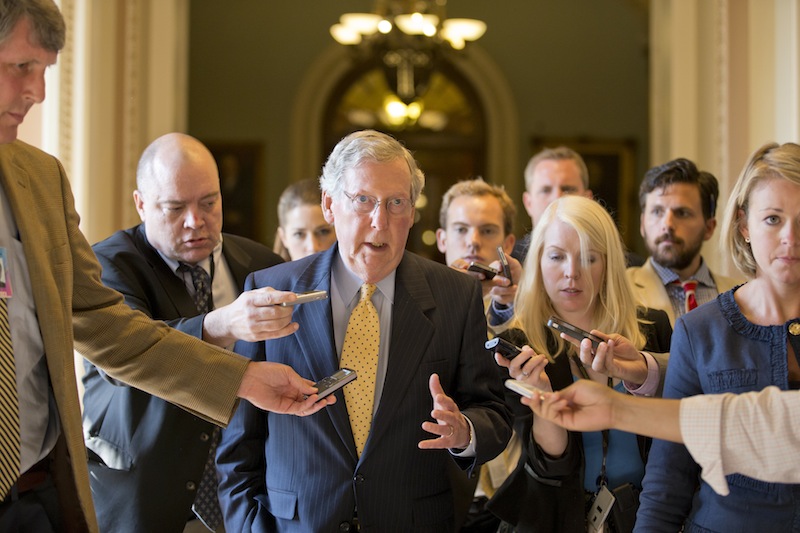Senate leaders have been involved in private talks since the weekend about to try to strike a bipartisan accord to prevent Democrats from scrapping the filibuster for executive nominations.
“There have been a lot of discussions over the weekend and that’s good,” Senate Minority Whip John Cornyn (R-TX) told reporters on Thursday. But he appeared less than confident that an agreement would ultimately be struck before procedural votes for seven pending nominees begin on Tuesday.
Sen. John McCain (R-AZ) has been at the center of the talks, seeking to find an amicable resolution to a total of four stalled nominees, three for the National Labor Relations Board and one to lead the Consumer Financial Protection Bureau. But the negotiations do not appear to have yielded a result.
According to CNN, McCain said enough Republicans would vote to overcome a filibuster against Richard Cordray to the CFPB as long as the White House agreed to replace two nominees to the NLRB who were recess-appointed: Sharon Block and Richard Griffin. That offer appears not to have yielded a result.
Senate Majority Leader Harry Reid (D-NV) reportedly met with White House Chief of Staff Denis McDonough and Minority Leader Mitch McConnell (R-KY) on Monday afternoon ahead of a rare all-members meeting in the Old Senate Chamber to discuss the nominations and rules.
“Denis went up to the Hill to meet with staff from Senator Reid’s office. He didn’t meet with the Leader,” a senior administration official told TPM. “McDonough went to the Hill to be available to answer questions, but Senator Reid is calling the shots. The White House is not negotiating with Senators.”
TPM caught McConnell leaving the meeting, but he was mum about it, saying only that “we’ll probably have something to say” after the all-member meeting at 6 p.m. ET.
Sen. John Thune (R-SD), the No. 3 Republican, expressed uncertainty about whether the existing NLRB nominees would be confirmed. But what about new nominees? TPM asked.
“That obviously would be an easier argument,” Thune said.
For now, a bipartisan agreement to head off the nuclear option does not appear to have been reached, and it’s not clear it will be. Reid is confident that he has the 51 votes needed for a nuclear-style rules change if Republicans don’t let all the seven nominees come to an up-or-down vote. The early evening meeting among all senators on Monday may have an impact. There remains an appetite to avoid the nuclear option, which has been threatened and averted at least three times since 2005.
“This can be resolved,” said Sen. Bob Corker (R-TN). “I’m hoping we see that through.”










